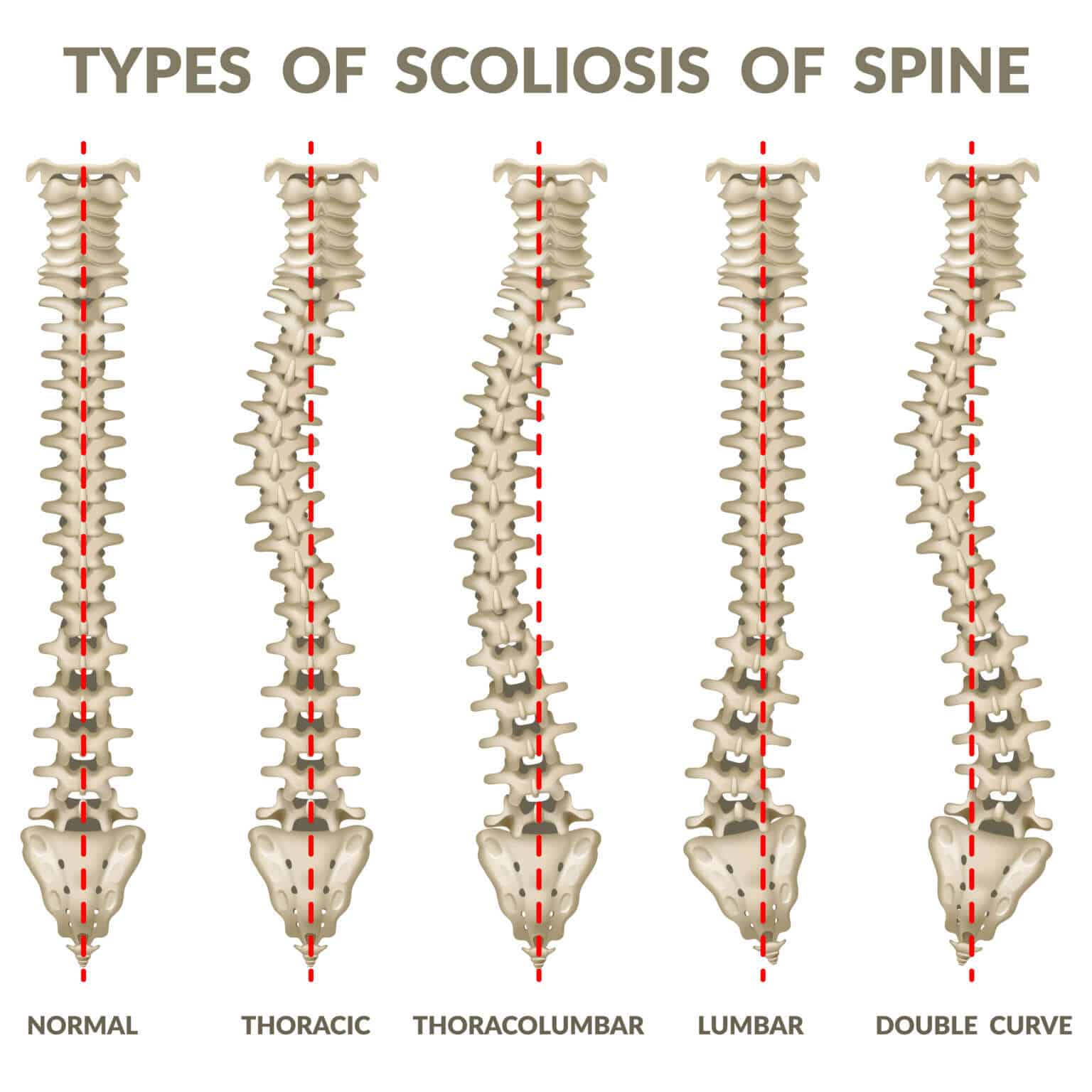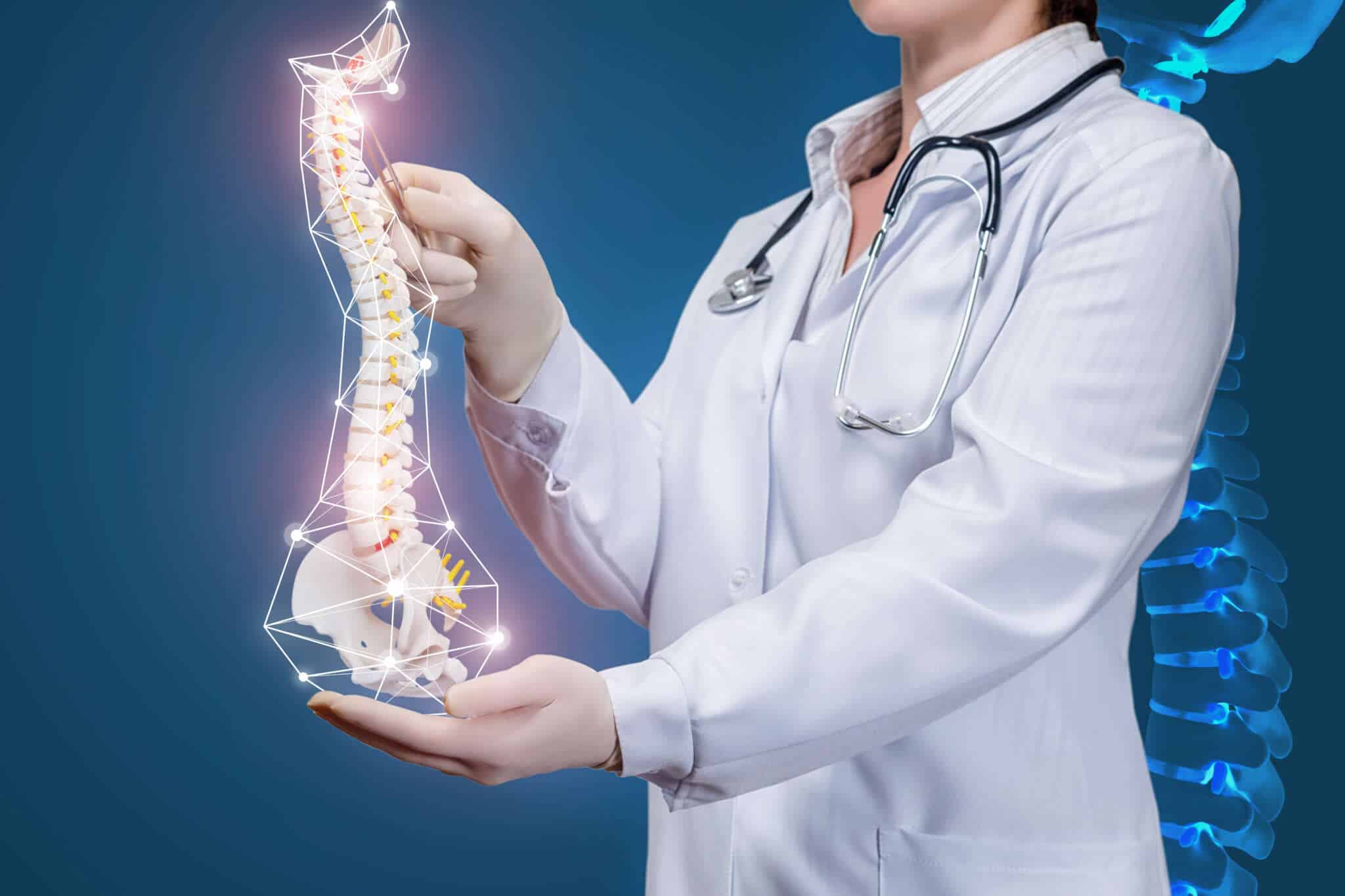What are the Common Symptoms of Scoliosis?
The symptoms of scoliosis depend on the severity of your curve and where it’s located on your spine. Here are some of the common symptoms:
- Uneven shoulders
- One shoulder blade that appears more prominent than the other
- One hip higher than the other
- Uneven waistline
- One side of the rib cage sticks out more than the other


Common Causes of Scoliosis
There are no definitive causes of scoliosis, but there are several theories. Genetics is thought to play a role, as the condition often runs in families. It is also more common in girls than boys. Some other possible causes include:
- Neuromuscular conditions, such as cerebral palsy or muscular dystrophy
- Birth defects of the spine
- Injuries to the spine
Risk Factors for Scoliosis
There are several risk factors that may increase your chances of developing scoliosis, such as:
Age
The condition is most common in children aged 10-15.
Family History
If you have a family member with scoliosis, you’re more likely to develop it yourself.
Gender
While scoliosis can appear in both sexes, it is more common in girls.
Treatment for Scoliosis
Mild scoliosis usually doesn’t require treatment. In severe cases, however, surgery may be necessary to prevent the curve from progressing. Some of the common treatment options for scoliosis include:
Bracing
A brace can be worn to stop the curve from getting worse.
Surgery
In severe cases, surgery may be necessary to correct the curve. Spinal fusion is the most common type of surgery used to treat scoliosis.
Spine and Rib Growing Rods
These are implanted rods that are used to straighten the spine gradually.
